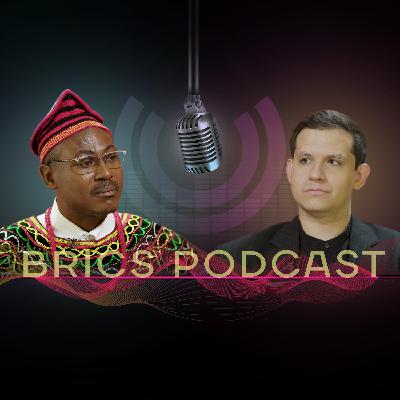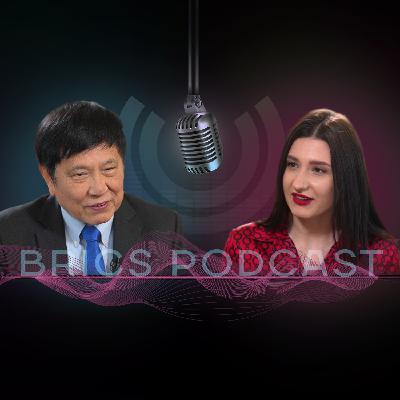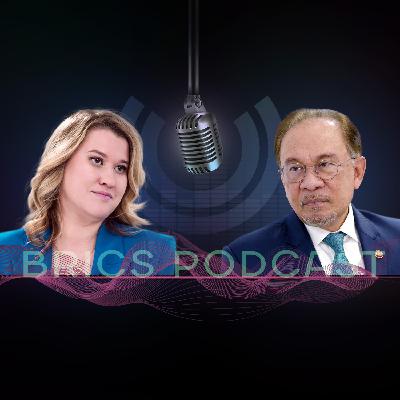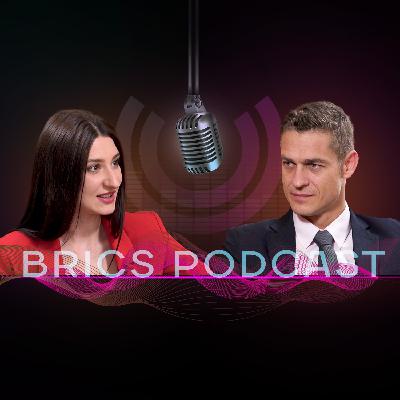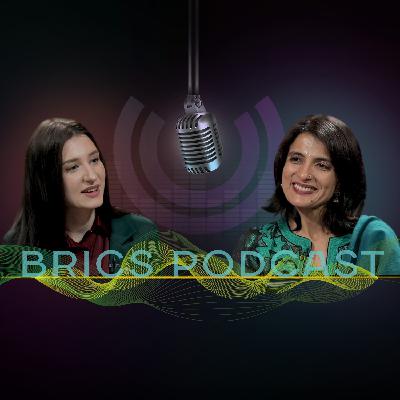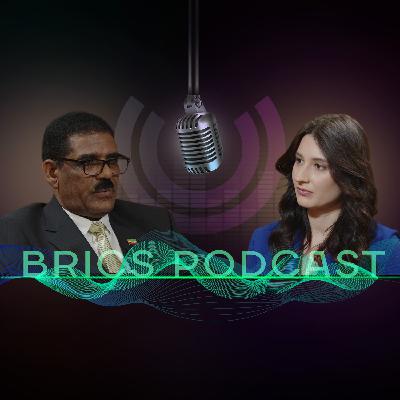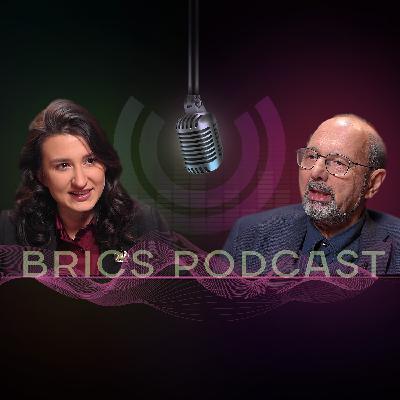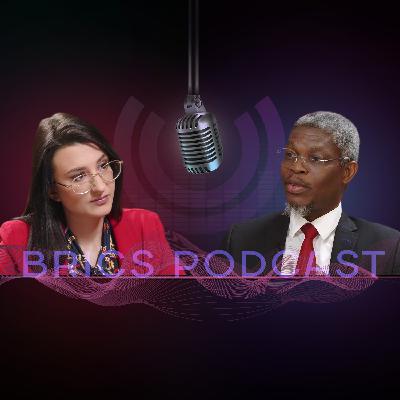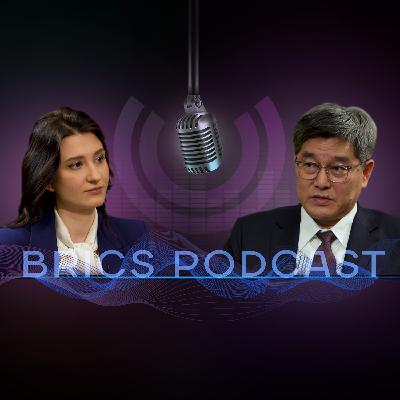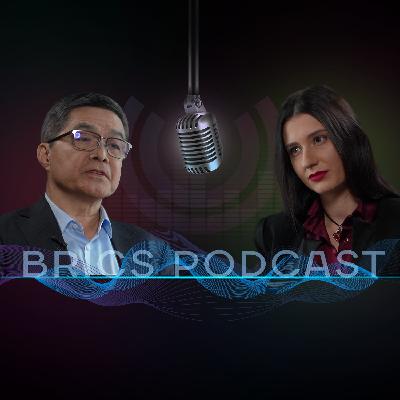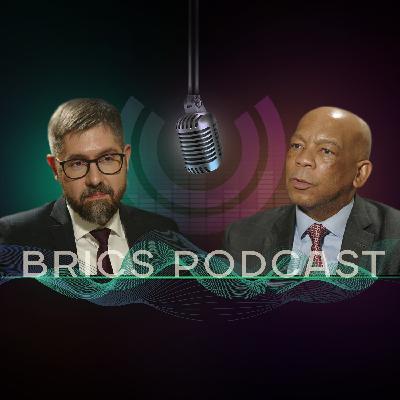Discover BRICS Podcast (EN)
BRICS Podcast (EN)

BRICS Podcast (EN)
Author: TV BRICS
Subscribed: 38Played: 172Subscribe
Share
2026 © TV BRICS. Все права защищены.
Description
Podcasts about history, economics, domestic politics and international relations in the BRICS countries: Brazil, Russia, India, China, South Africa, Egypt, Iran, UAE, Saudi Arabia, Ethiopia.
What new technologies have already been introduced in the BRICS? How will the entry of new countries strengthen the position of the association? How will the BRICS expansion affect the business environment in Russia? How can we speed up the process of creating a new global settlement currency for the BRICS countries?
Together with historians, scientists, sociologists, political scientists and authors of popular non-fiction, we will figure out this issue.
49 Episodes
Reverse
Indonesia is one of the centers of energy transformation in Southeast Asia. By 2050, the country intends to increase the share of green energy in its overall energy mix to 31 per cent, and by 2060, it aims to achieve carbon neutrality.What opportunities does BRICS membership provide for Indonesia’s energy sector? What is the current national energy security index score for country?We talked about this in a BRICSterview with Muhammad Dhery Mahendra, a specialist in renewable energy and sustainable business project development at the Indonesian state oil and gas company.TV BRICS reporter: Leonid Samuna
More than five centuries ago the great Russian navigator Afanasy Nikitin voyaged to India, laying the foundations for relations between the two countries. Nowadays the countries cooperate in a number of important areas, among them are education, culture, science and economics.
In what ways is Afanasy Nikitin revered in India? Why is another Russian figure – orientalist Andrey Snesarev – considered an ambassador of culture in the republic?TV BRICS reporter: Yana Panferova
A roadmap for the development of peaceful nuclear energy until 2030, negotiations on the modernisation of hydroelectric power facilities and LNG supplies – Russia and Vietnam intensified their cooperation in the energy sector in 2025. The residents of the republic are convinced that science and technology are the key driving forces for its development.We talked about this with Bui Minh Phuong, a researcher at the Hanoi University of Science and Technology.
TV BRICS reporter: Leonid Samuna
Recently, the partnership between Russia and African countries in the field of culture and art has reached a qualitatively new level. This is particularly facilitated by the BRICS platform. In 2017, a decision was made to establish the BRICS Alliance of Art Museums and Galleries to strengthen cultural exchange and cooperation. At the second Russia-Africa summit, the parties went even further and came up with the idea of creating the Museum of African Cultures in Moscow, the world's first museum outside Africa, dedicated exclusively to African themes.We talked about this with Etta Ojang Ivan, Deputy Director of National Museum of Cameroon.TV BRICS reporter: Leonid Samuna
In recent years, BRICS has entered a new phase of development, expanding both its membership and its strategic agenda. According to experts, this transformation reflects the growing appeal of the group as a platform for equitable global technical, scientific, and economic cooperation.Infrastructure development, green economy initiatives, and academic collaboration are becoming key pillars of BRICS cooperation. Soft power tools remain equally important – cultural and educational exchanges, expert dialogues, and trust-building initiatives that can bring societies closer together in a multipolar world.These and other topics were discussed with Professor Shen Yi, Director of the Center for BRICS Studies and Professor at the School of International Relations and Public Affairs at Fudan University.TV BRICS reporter: Alisa Koroleva
In the 15 years of South Africa's membership in BRICS, the country has become one of the most important members of the grouping and contributes significantly to its work. In 2023, South Africa chaired BRICS, emphasising the importance of "partnership for mutually accelerated growth, sustainable development and inclusive multilateralism". To this day, South Africa continues to actively promote multipolarity and the interests of the African continent. South Africa is assisting its neighbours in infrastructure and technology development, smart cities, and green transition. This year the country is chairing the G20, which contributes to the establishment of a sustainable and equitable dialogue in the group.We talked about this with Marius Fransman, businessman and politician from South Africa, founder of the People’s Movement for Change political party.TV BRICS reporter: Leonid Samuna
Studying materials in extreme conditions is a promising area of research that helps to uncover previously unknown secrets about our planet. According to Chinese-American geophysicist Ho-Kwang Mao, the scale and importance of the high-pressure area correspond to a separate branch of physics. The complexity of these studies is quite high, so they require the exchange of international experience. The Centre, which is headed by Professor Mao, employs research teams from different countries, including BRICS. The scientist himself also works closely with colleagues from Russia.Ho-Kwang Mao, director of the Shanghai Centre for Advanced Research in High-Pressure Science and Technology, answered these and other questions.TV BRICS reporter: Yana Panferova
Malaysia is actively developing economic ties with ASEAN countries but is also interested in strengthening the Global South, seeing a significant role for BRICS. In 2025, Malaysia was granted the status of a partner country of the group.Today, this Southeast Asian state implements digital technologies across different sectors of its economy, investing considerable financial resources into data centre markets and the evolution of artificial intelligence.TV host, Director of TV BRICS International Cooperation Department: Darya Ivankova
During World War II, Brazil made a significant contribution to the struggle of its allies against the Nazi forces, which became its only direct participation in the global conflict. The country entered the war in 1942 and became the only Latin American state to send its troops to participate in the fighting in Europe. More than 25,000 Brazilian soldiers were sent to Italy in 1944-1945 as part of the Allied Mediterranean campaign. They participated in several key battles, such as the Battle of Monte Castello, the Battle of Collecchio, and the capture of Montez.Attention to this topic in modern Brazilian society has been growing in recent years. The role of national troops in the fight against fascism is becoming the subject of research and historical discoveries, which form the basis of films and books about the participation of Brazilian soldiers in World War II.TV BRICS reporter: Yana Panferova
The “Ramayana” and the “Mahabharata” are ancient Indian epic works written in Sanskrit. These texts contain myths about the life of the kings and raise philosophical questions about choice, loyalty, and duty. The books have been translated into many languages of the world. Separate works have been created based on the “Ramayana” and the “Mahabharata”, explaining the original poems.TV BRICS reporter: Yana Panferova
2024 was a breakthrough year for relations between Russia and India. The leaders' meeting in Moscow, the BRICS summit in Kazan and a series of working meetings strengthened the partnership. The focus is on the economy.TV BRICS reporter: Anna Gryzlova
India is actively building up its partnership both with the countries that are at the origins of the creation of the BRICS and with those who have recently joined the group. The country continues to actively develop joint projects with Russia in science, education, culture, and economy and exchange experience in the field of sustainable development. TV BRICS reporter: Yana Panferova
In 2024, Ethiopia became a member of the BRICS. Being one of the fastest growing economies in the global system, the Republic aims to enhance its trade volume and strengthen ties with members of the group. Environmental protection and reduction of desertification are key spheres to Ethiopia within the context of BRICS cooperation.How Ethiopia can tackle climate challenges together with BRICS? What initiatives can Ethiopia offer to association? Genet Teshome Jirru, Ambassador Extraordinary and Plenipotentiary of the Federal Democratic Republic of Ethiopia to the Russian Federation answered these and other questions in the BRICSterview.TV BRICS reporter: Yana Panferova
2024 marks Russia's BRICS Chairmanship, also recognised globally as the year of the group's major expansion. Richard Sakwa, a professor at the University of Kent, Moscow State University, and Senior Research Fellow at the Higher School of Economics, shared his views on the contributions each new BRICS member country has made to the group.
What role does the group play in shaping a multipolar world?
What reforms should be made to global governance institutions? What are the prospects for cross-border migration and the development of human capital within BRICS countries, particularly in Russia?
These and other questions were answered by political scientist Richard Sakwa in a BRICSterview.
TV BRICS reporter: Yana Panferova
The interest in BRICS studies is growing rapidly among publishers and scholars worldwide. The topics of financial, environmental cooperation, cultural, and educational exchange are under the academic lens of the BRICS Research Institute in South Africa. Along with other areas, an increasing role of the African continent in the group is also under the focus of their studies.What are the main achievements of cooperation between BRICS countries? And what yet has to be improved?Fulufhelo Netswera, a South African scholar and the Head of the BRICS Research Institute, answered these and other questions in the BRICSterview.TV BRICS reporter: Yana Panferova
The Kingdom of Thailand is actively developing partnership with Russia. The trade turnover between the countries continues to show rapid growth.
What potential does Thailand see in joining BRICS?
Will the Russian national payment system MIR be implemented in the Kingdom?
Sasiwat Wongsinsawat, Ambassador Extraordinary and Plenipotentiary of the Kingdom of Thailand to the Russian Federation, answered these and other questions at BRICSterview.
TV BRICS reporter: Yana Panferova
A new international financial centre is emerging for BRICS and countries of the global digital majority.
What is the Global Digital Majority? What can boost cooperation between Russia and ASEAN in the sphere of the digital economy? What are the prospects for introducing the BRICS common currency? What is the future of digital currencies?
The co-founder of the International Digital Economies Association (iDEA) and convenor of Digital Pilipinas, Dr. Honoris Causa Amor Maclang, answered these and other questions in this BRICSterview.
TV BRICS reporter: Aleksey Charskiy
In the foreseeable future, fuel will be produced from renewable energy sources. This is the opinion of a scientist, an expert in the field of energy, Minggao Ouyang.What factors affect the rate of hydrogen fuel production? And how can electric cars be used in different climate conditions? Minggao Ouyang, winner of the Global Energy Prize 2024, answered these and other questions in the BRICSterview TV BRICS reporter: Yana Panferova
Exchanges and cooperation in the cultural sphere are crucial topics on the agenda of Russia's BRICS Chairmanship in 2024.
What genres and themes are currently in focus of creators from BRICS countries and why it is important to develop children's movie industry - these and other questions were answered by Dragan Fimon, a prominent Serbian film director and jury member of major international festivals.TV BRICS reporter: Vasily Kuchushev
How to reach a balance between traditional and renewable energy sources? What is the best possible way to supply remote territories with electricity? And how BRICS helps to develop new technologies in energetic sphere?
Minister of Electricity and Energy of South Africa Dr. Kgosientsho Ramokgopa answered these and other questions in BRICSterview.TV BRICS reporter: Dmitry Belkevich





